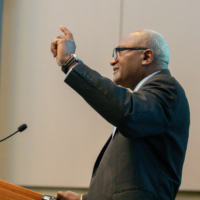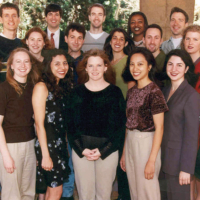Mark Peterson on Passage of Health Care Reform Professor Mark Peterson recently went on Minnesota Public Radio to provide analysis on the historic passage of this week's health care reform bill
Professor Mark Peterson of the Department of Public Policy provided analysis of the historic passage of this week’s health care reform bill; he was featured on “Midmorning” with Kerri Miller on Minnesota Public Radio (along with David Drucker, staff writer for Roll Call; and Terry O’Neill, president of the National Organization for Women).
The following is an excerpt from the hour-long program:
KERRY MILLER (Midmorning, Minnesota Public Radio): “Mark, you hear competing arguments about this—the President will say economic recovery is linked to health care reform because it will allow businesses to do better planning, people aren’t going to be so worried about higher premiums, but then you hear Republicans say, ‘Look, this is going to be a jobs killer’ because you’ve got companies that are now going to have to offer health insurance because they’re going to pay a penalty if they don’t.”
MARK PETERSON: “Yes, and there are points to be scored on both sides of that, I think that it’s very important to make that linkage with the economy. It is important to note that if the Congress had not passed any legislation at all and we continued under the current set of arrangements, the status quo was not going to be a stable experience. Premiums were going to shoot up quite dramatically, millions more would be losing insurance, and a lot of that is also a drag on the economy as well. And so you have to compare what is going to happen in the future under the bill, with what would have happened without the bill.
It’s also the case that there are many ways in which businesses right now, that really cannot afford to provide health insurance for their employees—small businesses—by 2014 as the exchanges are being set up, those businesses ultimately will have access to the exchange and be able to provide insurance to their employees at a much, much better rate than they can possibly do now in the small group market.”
Listen to the complete interview here.







Leave a Reply
Want to join the discussion?Feel free to contribute!